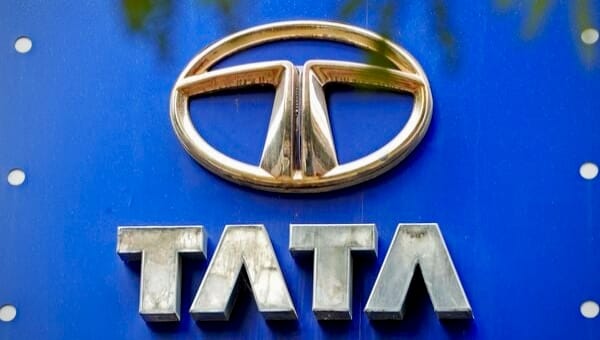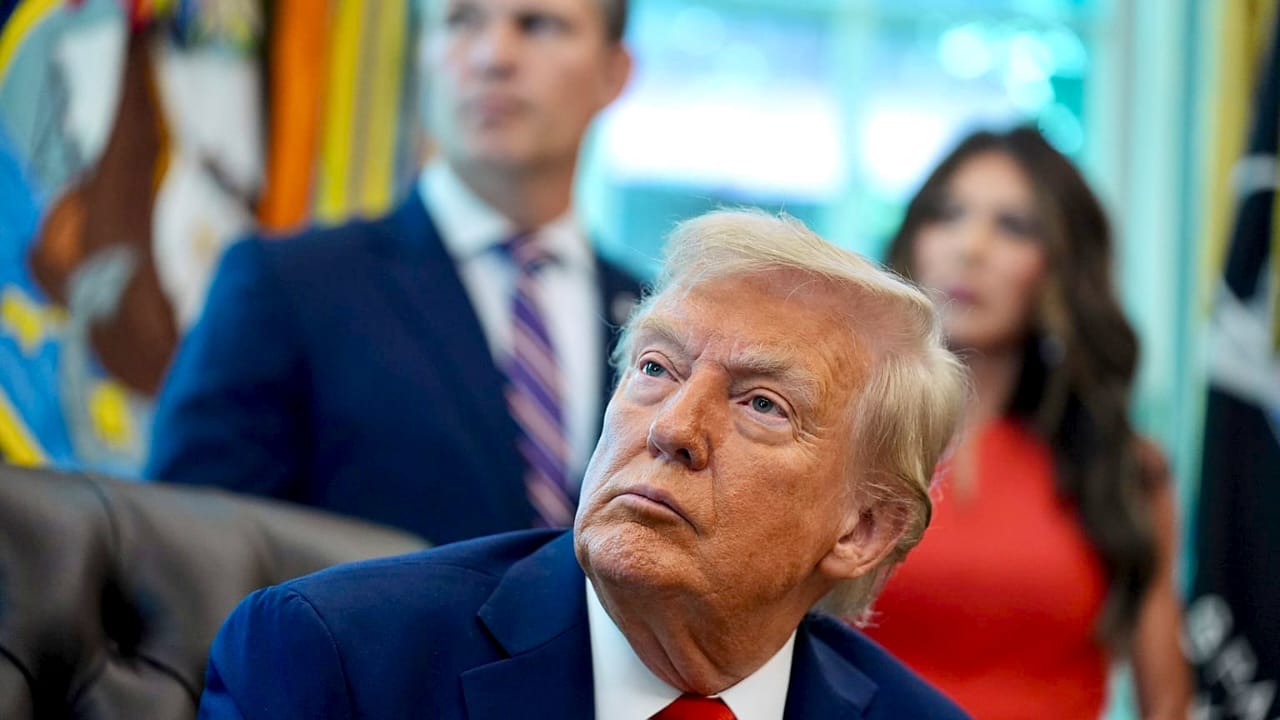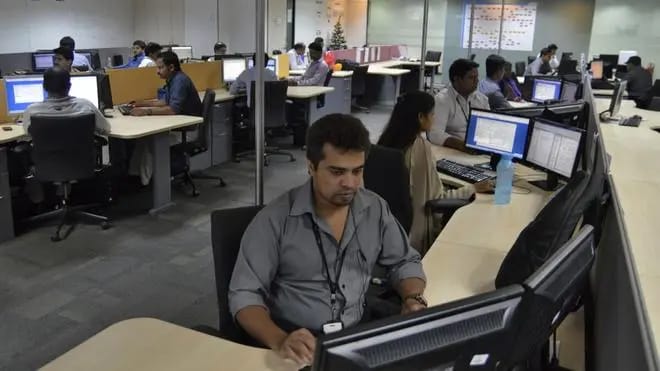
Tata Motors CV Debuts on NSE; Demerger Fuels Market Optimism**
* Tata Motors Commercial Vehicles (TMCV) listed on the NSE today, advancing 8.5% to ₹450, achieving an estimated ₹65,000 crore valuation post-demerger.
* Parent Tata Motors Ltd. shares also climbed 3.2% to ₹985.30, significantly outpacing the Nifty 50’s 0.7% rise, signaling robust market conviction.
* This strategic demerger creates distinct entities, enhancing operational focus and capital access for both commercial and passenger vehicle segments, initially disclosed March 4.
* TMCV’s formidable 42% market share in M&HCVs and standalone ₹102,300 crore revenue affirm its strong financial footing and growth potential.
* TMCV’s independent capital market access facilitates accelerated investments in electric powertrains and nimble responses to India’s projected 8-10% CV market growth.
The market’s immediate endorsement of Tata Motors Commercial Vehicles’ demerger, with an 8.5% share surge to ₹450, underscores a sophisticated investor appetite for focused asset plays within India’s diversified industrial conglomerates. This maneuver, where the combined entities significantly outperformed the Nifty 50’s 0.7% appreciation by a considerable margin on debut, decisively reshapes India’s automotive investment thesis, signaling enhanced transparency and distinct strategic pathways.
Tata Motors Commercial Vehicles (TMCV) commenced trading on the National Stock Exchange today, marking a significant strategic demerger as its shares advanced 8.5% to ₹450 by midday. This robust debut valued the distinct entity at an estimated ₹65,000 crore ($7.8 billion), immediately affirming investor conviction in the spin-off’s rationale. Concurrently, parent Tata Motors Ltd. shares escalated 3.2% to ₹985.30, significantly outpacing the benchmark Nifty 50 Index’s modest 0.7% appreciation to 19,450.65, which closed at 19,450.65. This robust market reaction reflects a broader understanding among seasoned asset managers of the value proposition in specialized business entities.
This strategic unbundling, initially disclosed on March 4 following an internal organizational architecture assessment, seeks to provide both the commercial and passenger vehicle divisions with autonomous operational frameworks and direct access to capital markets. P. K. Gupta, Managing Director at Axis Capital, observed in a client note that this demerger “represents a pivotal move to elevate shareholder returns, enabling both commercial and passenger vehicle businesses to independently pursue their distinct strategies without portfolio interference.” Such corporate delineation offers investors more precise investment profiles, aligning with each segment’s unique risk-reward calculus, a methodology increasingly favored across global capital markets.
TMCV’s standalone revenue for the fiscal year ending March 31, 2023, registered a formidable ₹102,300 crore ($12.3 billion), accompanied by an 8.5% EBITDA margin, according to regulatory filings. Its entrenched dominance within India’s commercial vehicle sector, commanding a substantial 42% market share in medium and heavy commercial vehicles as of September 2023, underpins its formidable financial footing and operational leverage. This direct conduit to public capital markets expedites investments in new product innovation and expanded manufacturing capabilities, crucial for sustaining its competitive advantage in a dynamically evolving mobility landscape.
Historical market patterns consistently illustrate that corporate demergers frequently unlock latent value, a blueprint exemplified by Dr. Reddy’s Laboratories’ separation from its parent in the 1990s and, more recently, Reliance Industries’ spin-off of Jio Financial Services on August 21, 2023. These precedents underscore how specialized entities attract distinct investor demographics and attain elevated valuations by delineating core business objectives, rather than diluting focus within a diversified conglomerate. Such strategic reconfigurations reflect a broader trend of corporate restructuring within India’s evolving industrial landscape, where capital markets increasingly favor focused business models over sprawling, diversified structures, appealing to a segment of investors accustomed to navigating multiple economic cycles.
The commercial vehicle sector confronts specific, non-fungible imperatives, requiring acute managerial oversight and targeted capital deployment distinct from consumer discretionary segments. Anil Sharma, an independent auto industry analyst who has navigated the auto sector through multiple economic cycles, emphasized that these include “fleet modernization, infrastructure spending patterns, and the accelerating transition to electric powertrains.” India’s commercial vehicle market is forecast to expand at an 8-10% compound annual growth rate through 2028, propelled by substantial government infrastructure programs and escalating logistics requirements nationwide, necessitating focused investment from players like TMCV.
Conversely, the demerger enables Tata Motors Ltd. to intensify its concentration on the high-growth passenger vehicle segment, particularly electric vehicles (EVs), where it commands over 70% of the Indian market as of October 2023. This strategic delineation is paramount as the parent company pivots toward sustainable global mobility solutions, unburdened by commercial vehicle mandates. Both entities now possess greater latitude for targeted strategic collaborations; TMCV, as an autonomous enterprise, can forge alliances for advanced driver-assistance systems (ADAS) or specialized battery manufacturers, while Tata Motors Ltd. gains the latitude to concentrate exclusively on its passenger and EV strategies, potentially expediting its global market penetration.
Looking forward, TMCV’s autonomous trajectory mandates substantial investment in electric and alternative fuel powertrains for its commercial fleet, consistent with India’s decarbonization objectives and burgeoning logistics demands. This operational independence facilitates swifter decision-making and a more nimble response to market fluctuations, positioning the firm advantageously to capitalize on infrastructure development across the subcontinent. Investors will monitor TMCV’s capital expenditure allocation, new product roadmap, and market share evolution for signals of sustained growth amidst India’s projected economic expansion through 2028, discerning how effectively it leverages its newfound strategic latitude.





